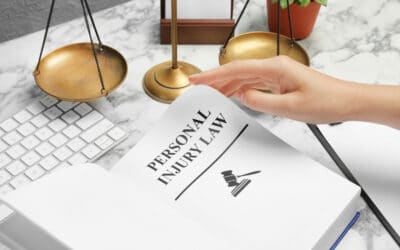Picture stepping into your local grocery store and while browsing the produce aisle, you slip and injure yourself on leftover mop water. You may have been able to avoid your injuries if an employee or store manager had put up a cautionary sign to warn you, but they didn’t.
If you are injured on someone’s property, then you may be able to file a premises liability claim to recover compensation. Although you may be able to handle your claim on your own, you will put yourself in the best position to get compensation by hiring a premises liability attorney.
if you are unsure that you have a valid premises liability claim, then read through this guide. The guide includes information about premises liability law that may give you clarity about your legal claim.
The Basics of Premises Liability
Premises liability is a branch of personal injury law that covers accidents that happen due to unsafe conditions on a piece of property. In Texas, to be successful in your premises liability claim, you must prove three things:
- By law, the property owner owes you a duty of care
- The property owner didn’t provide that legal duty
- That your injuries were caused as a result of the property owner failing to provide you with a duty of care
A duty of care refers to the legal responsibility of a property owner to warn any visitors on their property of unsafe conditions that may cause injury that the owner is aware of or reasonably should be aware of.
But, the extent of the duty of care the property owner owes to visitors depends on the classification of the injured party at the time of the accident. Premises liability law considers a visitor to be an invitee, licensee, or trespasser.
As an Invitee
You are an invitee on someone else’s property if you have been onto the premises for professional or commercial purposes.
A plaintiff (the injured person) may be considered an invitee in a premises liability case if, for example, a spill in a grocery store they were shopping at causes their injury. The plaintiff has grounds to bring a premises liability claim against the grocery store owner because they had a duty to warn the plaintiff of any dangerous conditions on the property known to the owner or reasonably should have been known to the owner but not known to the plaintiff that the plaintiff wasn’t made aware of, leading to their injury.
As a Licensee
You are considered a licensee if someone invites you onto their property for your benefit. The owner has a duty to warn you as a licensee of any unsafe conditions on the property that they’re aware of but you are not.
You may be considered a licensee in your claim if you were, for example, injured by faulty floorboards while attending a social event at a neighbor’s home.
As a Trespasser
If you enter another person’s property without permission or without the authority of the law, then you are considered a trespasser. As a trespasser, the property owner has no legal duty to warn you of any unsafe conditions on the premises. They do, though, have a duty to not cause you injury either willing or through gross negligence.
The Open and Obvious Defense
The Open and Obvious doctrine is a legal defense used most commonly in premises liability cases. A property owner may use this defense against an injured party to protect themselves from liability.
Just as a property owner has a legal duty to warn visitors of unsafe conditions on the premises, visitors also have a legal duty to avoid any obvious unsafe conditions. The idea is that as a visitor, you are expected to recognize the warning signs of any obvious unsafe conditions and to take the proper steps to protect yourself from injury.
Statute of Limitations for Personal Injury Claims
In Texas, there is a two-year limitations period for an injured person to file a personal injury claim. This two-year limitation period also applies to premises liability claims. What this means in practice is that you have two years from the date of your accident to make a claim, otherwise you will lose your right to recover compensation for your injuries.
Limits on Recovering Damages
Each state uses a variation of the comparative negligence rule in personal injury cases. Texas practices the modified comparative negligence 51% rule. According to this rule, you can’t recover compensation for your injuries from the defendant if the law finds you to be 51% or more at fault for the accident.
What To Do After a Premises Liability Accident
If you are injured on someone else’s property, the first thing you must do following the accident is seek medical attention. By avoiding medical care, you hurt your chances of recovering financial compensation.
Before leaving the scene of the accident, you must gather any witness statements and take video or photos of the unsafe conditions that lead to your injury. If your injuries are so severe that you need immediate medical attention, then you must focus on getting help over documenting the accident. Likewise, you must notify the property owner of the accident, but only when you’re physically able to.
Finally, you must get legal advice from a premises liability lawyer as soon as possible to ensure you get the compensation you deserve.
Do You Need a Texas Premises Liability Lawyer?
If you are injured on someone’s property, then you may be able to seek compensation by filing a premises liability claim. And by hiring a lawyer, you best position yourself to get the compensation you deserve.
If you would like to learn more about premises liability law or think you may have a personal injury case, then contact us.



